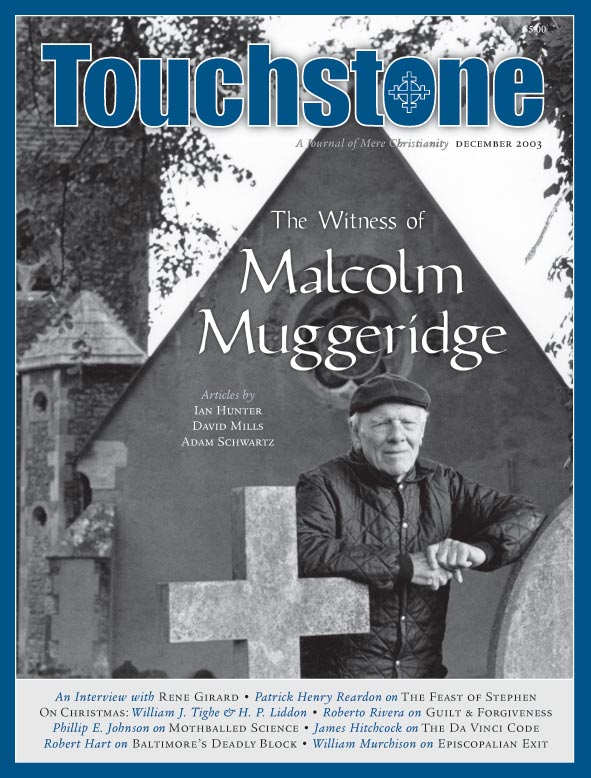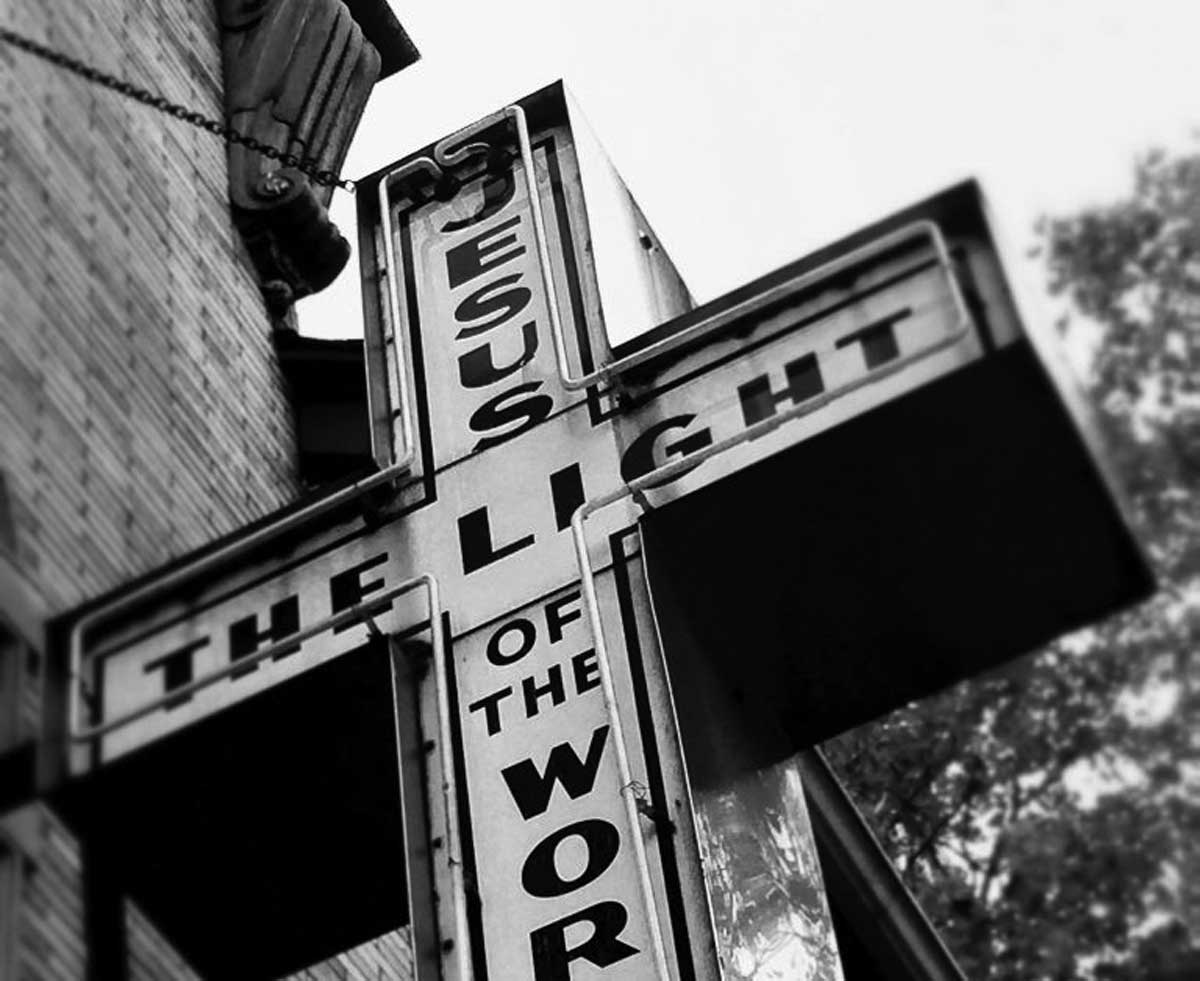Ecumenical Exclusion
When the July/August issue appeared, with the papers from our conference on “Christian Unity and the Divisions We Must Sustain,” the editors were surprised at the number of people who wrote to praise it. We thought the subject a bit old hat, because we deal with each other all the time. Readers were gratifyingly thankful that we addressed the differences between Christians without minimizing them. The issue met a need, and indeed it continues to sell.
It may be useful to reflect on the continuing divisions between Christians of the sort Touchstone represents, and ask what each of us can do to bring greater unity with brothers and sisters in Christ whom we believe to be rather seriously mistaken. What can we do, knowing that we are not all going to join a single Christian body? What can the Baptist who thinks the “Hail Mary” idolatrous and the Catholic who thinks sola scriptura an unbiblical idea do with each other?
The Answers
The typical “liberal” answer is to give up the differences or treat them as matters of taste. The typical answer of the old-fashioned conservative is to condemn the others or pretend they don’t exist. Our answer—our understanding of the ecumenical task—is to accept the divisions as realities we shall not overcome, and to work together for those ends we agree upon. We do not look for the exciting “ecumenical breakthroughs” that ecumenical enterprises announce from time to time, which never seem to come to anything, but for ecumenical alliances with those who love the Lord, the Nicene Creed, and the Christian moral tradition.
In particular, and against the thrust of the typical ecumenical enterprise, we believe that every church should keep its own disciplines, not least its requirement that no one be let in unless he agrees with everything that church teaches as essential. Some churches (like the Catholic Church and the Southern Baptist Convention) seem to insist on this complete acceptance more than others, but all the others (like the mainline churches) insist just as firmly on their standards when they are forced to. Imagine a white supremacist trying to join an Episcopal parish and expecting to wear his neo-Nazi uniform to confirmation. The most willfully “inclusive” of rectors will say no to this because it violates the Episcopal Church’s teaching.
Every church values its own standards more than the unity it could achieve by dropping them. Many people think this very picky, petty, small-minded, and selfish of them. Why make the entrance fee so high? they ask. Why not be generous and let someone in even if he doesn’t accept everything you teach? Why keep Christians divided when it is so easy to bring them together?
The entrance fees are high for good reason. Joining a church—and this applies to any Christian body—is like a marriage. It is a total commitment, not allowing any reservations, because every little point is still a crucial point, a point upon which the health of the whole thing depends. Leave out one of these little points, so apparently insignificant, and you do something very bad to the marriage.
You may commit yourself to staying out of bed with anyone not your husband or wife, but if you keep to yourself the right to think lustfully about someone else, your thoughts—small, occasional, and private as they may be—will eventually deform your marriage if they don’t help destroy it. Traitorous thoughts do as much damage, if more slowly and subtly, as traitorous bodies. Faithfulness requires purity in body and mind. It is not divisible. It is an all or nothing affair.
Joining a church requires the same sort of commitment. Whatever it believes, you have to believe it all. Even if it believes almost nothing and declares that all roads lead to God, you cannot join it while believing Jesus to be the Way, the Truth, and the Life. The Unitarians draw the line at Trinitarians, as well they should.
This instinct for exclusion is not a barrier to unity but the path by which it must be pursued. God will bring true unity to his scattered and divided people only if they are faithful to the Faith as they know it. He can do something to reconcile real Catholics and real Baptists, but he cannot do much with lazy, ignorant, or dishonest ones. I suspect he can do even less with those who value “inclusivity” over truth.
So if you want to do something for Christian unity, keep your entrance fees high and demand 100 percent acceptance of everything you teach, and trust the Lord to work out Christian unity in his own way and time. Do not lie or pretend you are not who you are.
David Mills has been editor of Touchstone and executive editor of First Things.
subscription options
Order
Print/Online Subscription

Get six issues (one year) of Touchstone PLUS full online access including pdf downloads for only $39.95. That's only $3.34 per month!
Order
Online Only
Subscription

Get a one-year full-access subscription to the Touchstone online archives for only $19.95. That's only $1.66 per month!
bulk subscriptions
Order Touchstone subscriptions in bulk and save $10 per sub! Each subscription includes 6 issues of Touchstone plus full online access to touchstonemag.com—including archives, videos, and pdf downloads of recent issues for only $29.95 each! Great for churches or study groups.
Transactions will be processed on a secure server.
more on ecumenism from the online archives
more from the online archives
calling all readers
Please Donate
"There are magazines worth reading but few worth saving . . . Touchstone is just such a magazine."
—Alice von Hildebrand
"Here we do not concede one square millimeter of territory to falsehood, folly, contemporary sentimentality, or fashion. We speak the truth, and let God be our judge. . . . Touchstone is the one committedly Christian conservative journal."
—Anthony Esolen, Touchstone senior editor













